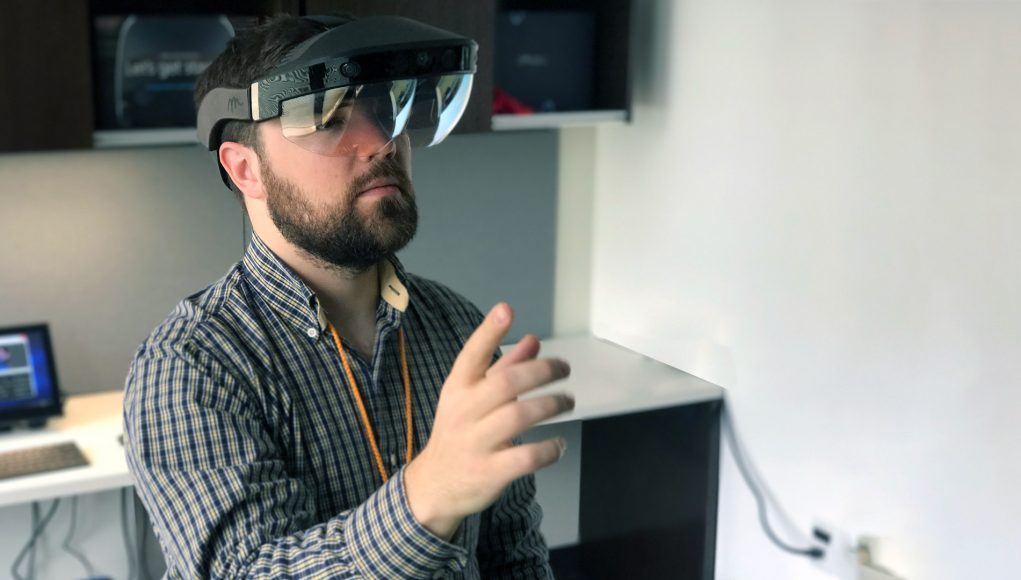Meta, the company behind the Meta 2 tethered AR headset, has suffered its fair share of growing pains since its founding in 2012, although a lack of outside investment and a recent patent infringement lawsuit seem to have proven fatal. Now, Meta founder Meron Gribetz confirms he’s stepped down as owner of the company after its assets were auctioned off to a new, unnamed buyer, presumably stripping the company down to its bare assets.
Update (January 22nd, 2019): Meta founder Meron Gribetz spoke with Variety recently, confirming that he is “no longer the owner of the company,” and that Meta’s assets “changed hands to (a) new owner.” Gribetz hasn’t specified the identity of the new owner, but maintains that support for their existing products will continue. “The Meta assets have a future,” he said. “That future was not so clear a few months ago.”
Whether that future actually includes the Meta Company itself, we just can’t say. Gribetz hasn’t revealed anything substantial, although he told The Verge that he was “somewhat encouraged” by the sale. “I feel like it’s a good home for the Meta assets, and that it could provide a future for them,” he said. No mention has been made about the future of Meta talent however.
So while Meta hasn’t publicly admitted defeat, it’s hard to imagine the company resurfacing after investor interest failed to keep it afloat in the first place. In the interim, Meta’s online shop portal has magically returned to the website after it was taken down sometime late last year, although without any visual indication that the company has switched hands, this could be the mystery owner’s bid to keep the lights on and quietly flush out whatever remaining Meta 2 stock exists at this point. We can’t say for sure, but because Meta is essentially a ghost ship currently, anything is possible.
Update (January 11th, 2019): Following evidence of court correspondence where the company admits insolvency and inability to settle litigation in the patent infringement case, Meta says it isn’t shutting down. We reached out to the company, although Meta responded to greater claims of its shutdown via a short press release saying that Meta “remains in full operation and continues to develop, sell and support its products working with a team of engineers and product specialists.” Meta hasn’t denied its insolvency, or the veracity of the claims made in the court correspondence.
The company says further information is yet to follow in a statement slated for next week which will “address details of the recent restructuring and subsequent progress.”
Original Article (January 10th, 2019): Back in September, Meta lost out on a fresh round of funding lead by a Chinese investor which forced the company to furlough around 2/3 of their staff, leaving Meta’s existence in doubt as it looked for additional investment.
Making matters worse, the suspension of operations came shortly before Meta faced a patent infringement lawsuit from Genedics, LLC, which claims Meta infringed on “user interface methods for image manipulation and user input in a three-dimensional space where projectors display images and sensors identify user input,” Next Reality reports.
Next Reality obtained a statement from Meta CFO John Sines to Judge Christopher J. Burke, the Delaware-based presiding district court judge in the case, which details the company’s asset liquidation to a third-party after settlement negotiations failed.
Dear Judge Burke:
I am replying to your Court order that Meta Company retain counsel or reach a settlement with Genedics LLC.I regret to inform you that settlement negotiations were unsuccessful. Further, Meta Company’s lender exercised its remedies as first priority secured lender and foreclosed and sold all assets to a third party in a UCC foreclosure sale at a value below the outstanding loan amount, and Meta Company is insolvent. Meta does not have the resources to retain legal counsel or to provide a settlement offer.
Respectfully,
John Sines
Chief Financial Officer
Meta Company
Another fold in the foreclosure: both the Meta 2 headset and its list of executives have been removed from the company’s website, leaving only tutorials and info on their software (see update).
Founded in 2012, the company ran a successful Kickstarter in 2013 for an early AR development headset. Meta then went on to raise $73 million between its Series A and Series B investments. In 2016, Meta went on to unveil the Meta 2, a tethered AR headset development kit with a wide field of view, which the company sold for $1,500.
We’ve reached out to Meta for additional comments on the shutdown, and will update when we hear back. (see update)







